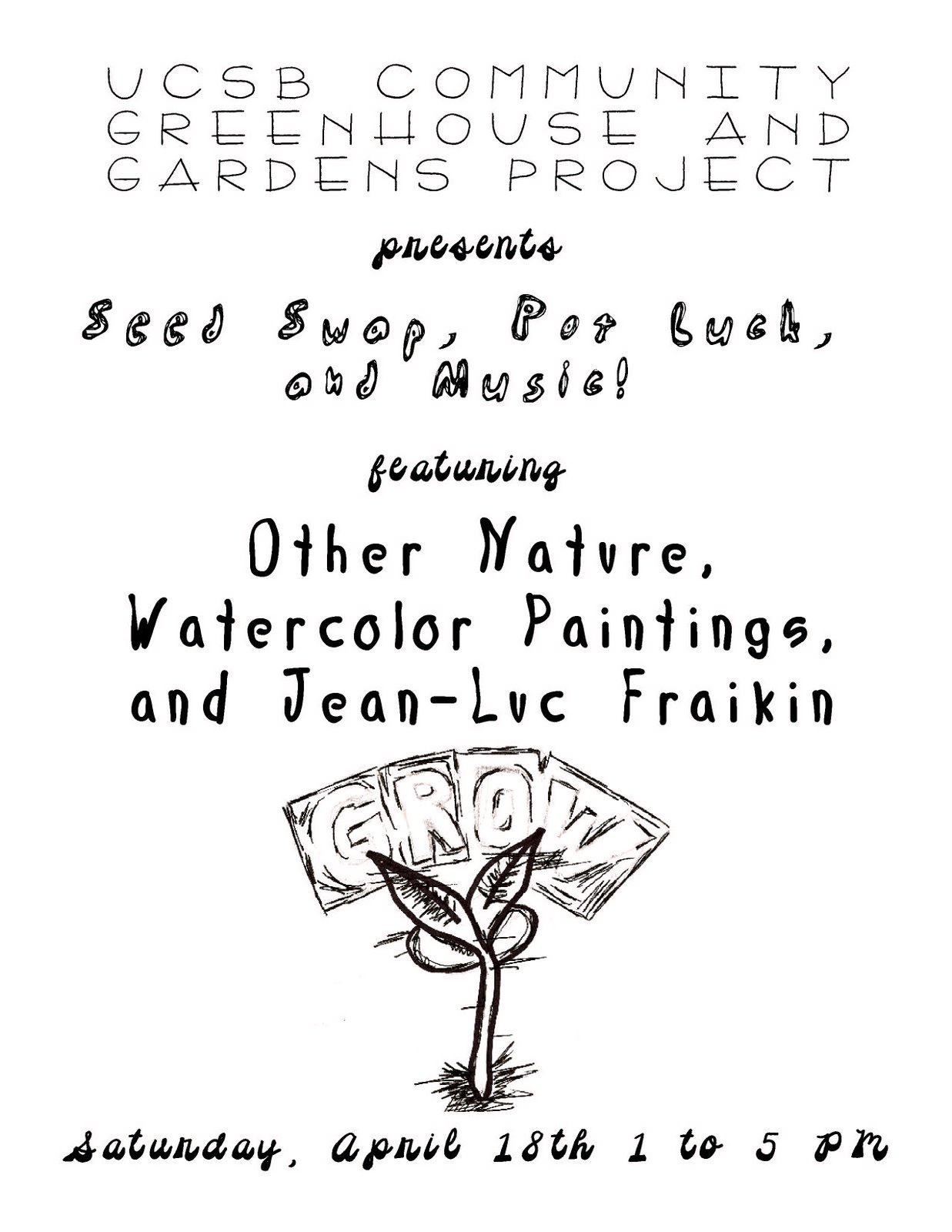Up Coming Events

The Future of Food- Introduction
This is the first part of a nine part documentary. You can check out the rest of the movie on YouTube.
Saving Tomato Seeds
The technique shown for saving tomato seeds can be applied to all juicy fruits where the seed is encased in a gelatinous substance, from cucumbers to passion fruits. Any seeds that are floating in the liquid after fermentation should be discarded as they are most likely not viable (won't germinate). Make sure you thoroughly dry the seed before storage to prevent rot. Seeds are best stored in a cool dry place.

1 comment:
When you think about extinction, the first thing that comes to mind is probably not fruits and vegetables. However, nearly all of the plants we use for food today trace their roots back to wild ancestors that were quite different then what we know them to be today. If no one had collected those seeds, planted, and tended to them generation after generation, we may be without many of our staple fruits and veggies today. _The heirlooms tomatoes that you find in your local supermarket may not be in short supply, but the real question to ask is not how many tomatoes we have, but how many kinds there are. Your local farmer’s tomatoes are their own special kind, or variety, meaning they display the traits that the farmer and their predecessors liked best. That trait might be the rich red color the tomatoes hold or perhaps something less-visible like a resistance to drought and disease. These traits arise from specific genes or combinations of genes present in a tomato plant’s genome._Though we may choose what traits we like best in our tomatoes and grow them accordingly, we cannot create new genes of our own and put them into our tomatoes. We rely on nature to supply us with this diversity in agricultural genetics. Therefore, if the unique complement of genes in your favorite fruits and vegetables disappears, it is gone forever._Seeds are a vital part of a plant’s life cycle, perhaps the most vital. By allowing your plants to go to seed, you sustain a process essential to all life forms on Earth. Food is a basic necessity and the production of that food is something too important to rely on others for. Management of seed is fundamental to the human ability of food production. By saving seeds you retain a lifeline. _Farmers have saved seeds and improved food crops for thousands of years. Only in the last century have farmers and gardeners become widely dependent on seed companies. Today the seed industry is so concentrated that just five large multinational corporations control 75% of the world’s vegetable seed market.* These companies add and drop varieties of seed in order to suit the demand of our times. In this process we loose the precious genetic diversity that has enabled us to provide for ourselves for so long. _The agricultural industry in America and around the world continues to place more and more restrictions on the right of farmers and gardeners to save seeds. Variety patenting, licensing agreements, and restricted lists such as that maintained by the European Union, are industry tools created to take the power of the seed away from the common man. Terminator Technology, now in its developmental phase, would render seeds sterile, making it impossible for farmers to save seed and forcing growers back to seed companies for every new crop. _Many of the food crops we enjoy today were developed by amateur gardeners from wild species. Growing your own crops and selecting favorable traits from the seeds is a powerful human tradition, one that we must not allow to become obsolete.
Post a Comment